After years of development and listening attentively to gamers, the third part of the cult post-apocalyptic series is finally here. We’ve used this occasion to ask some questions to the game’s lead designer David Rogers and other developers from inXile Entertainment.GOG.COM: What are your views on the future of mankind - should we be worried?David Rogers, Lead Designer: I don't think we should be worried. Even if there's a nuclear apocalypse, it seems (according to Wasteland) like there'll still be plenty of drugs to go around. ;-)
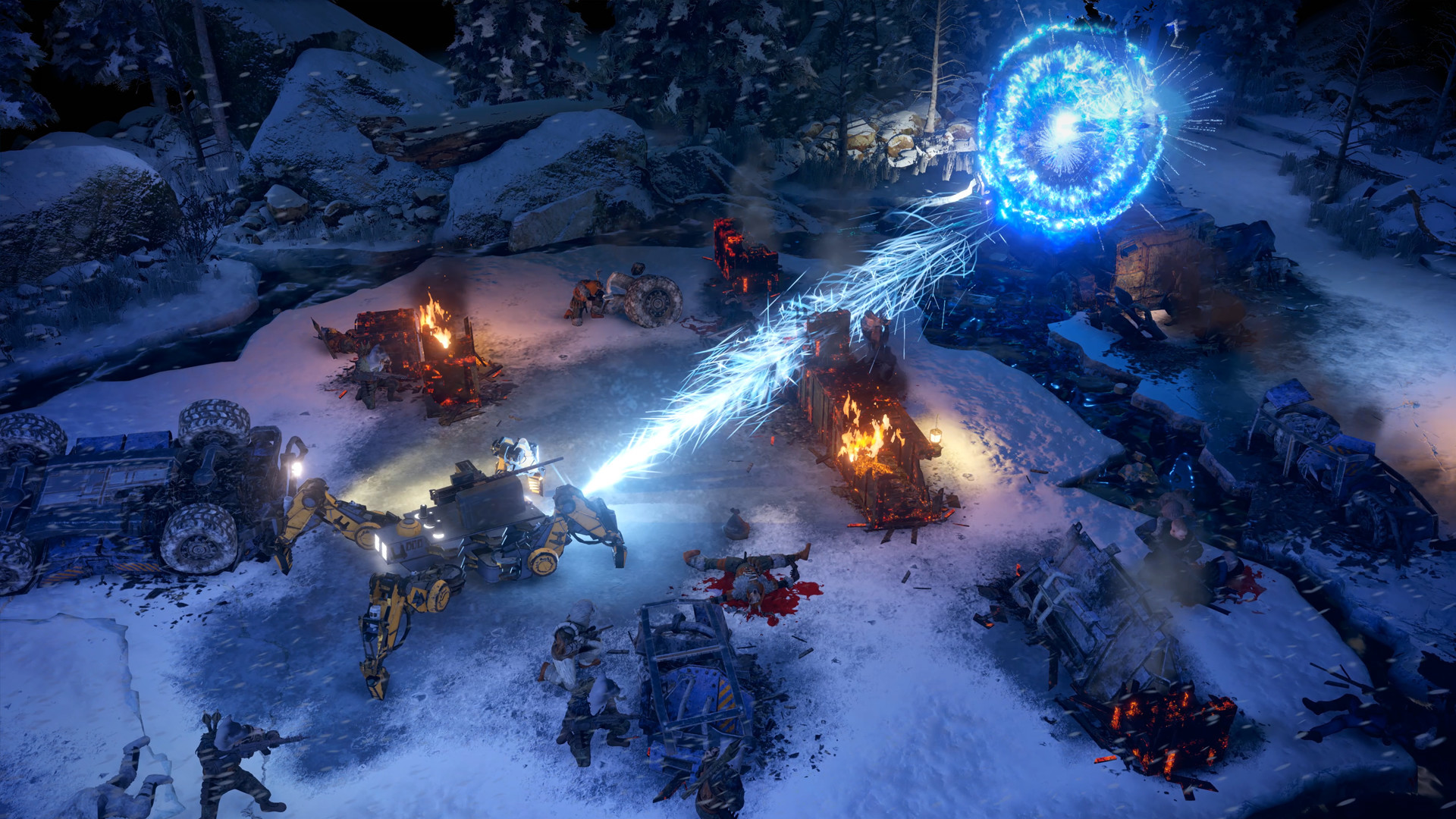 What element of the Wasteland series have you always felt most drawn into, what kept you going through the years of games’ development?
What element of the Wasteland series have you always felt most drawn into, what kept you going through the years of games’ development?I’ve really loved helping build Wasteland alongside my amazing team. It feels a heck of a lot like being a Dungeon Master. We’re really focused on telling the player’s story, trying to anticipate their every move, and make the game work no matter what they do. Something that’s really motivated all of us as we finish polishing Wasteland has been the fan feedback during the Alpha and Beta tests. I feel a lot of support from our community of Wasteland fans.
Who is your favorite character from the game and why? We would appreciate as many answers from the team as possible.David Rogers, Lead Designer - Scotchmo. I just find him a joy to be around. He really lightens the mood of our often-bleak game. From a playstyle perspective, and for what he does to the story, I’d go with Ironclad Cordite. He’s got his own agenda and it’s pretty horrible, but if you entertain his plans he’ll take the game in a crazy direction.
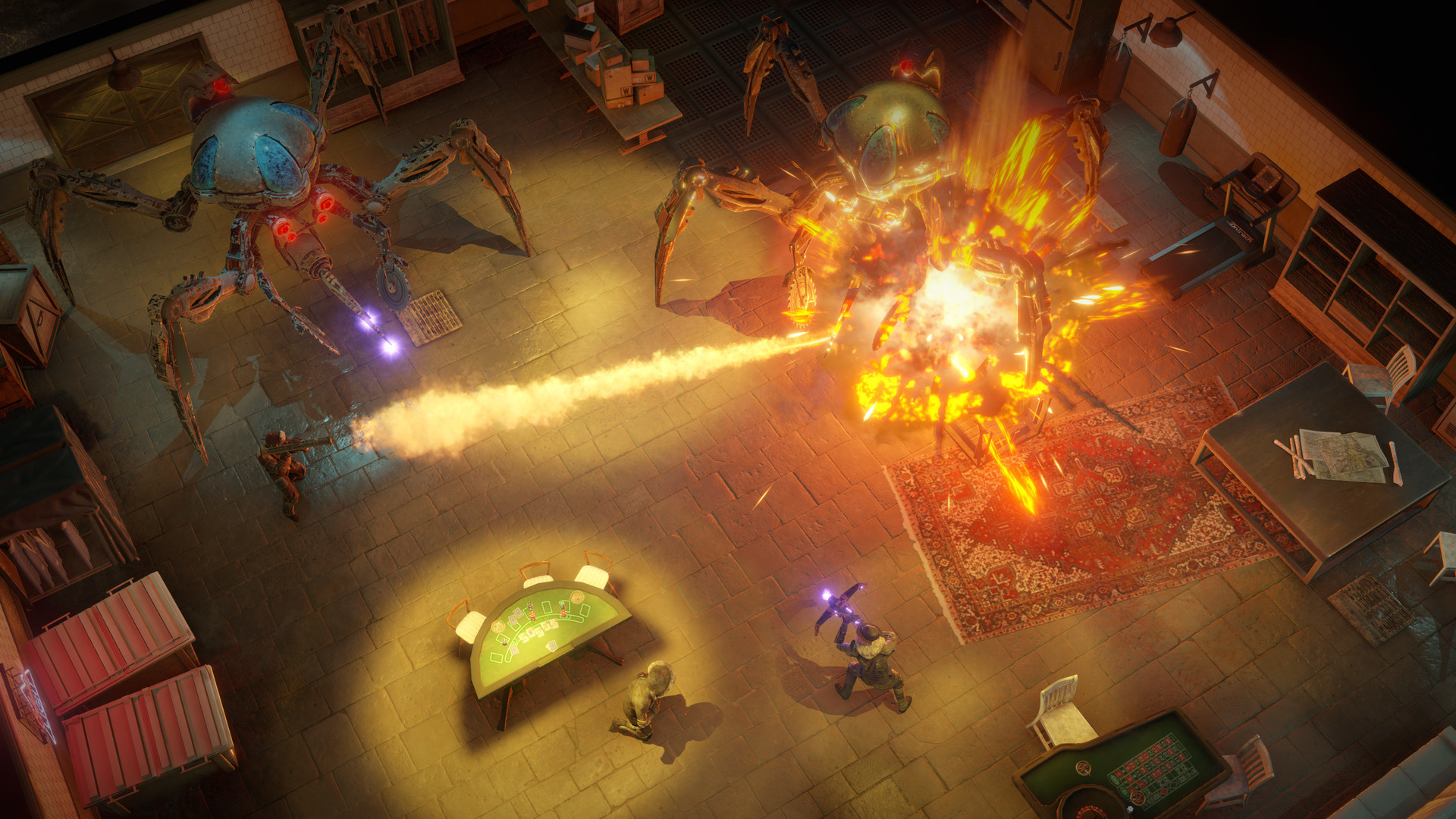
Alex Kerr, Level Designer - Party Pal. When everyone else sees a frozen hellscape, it sees a potential party!
Thomas Beekers, Narrative Designer - Long John, a synth hiding in the Bizarre, disguised very poorly by wearing a Richard Nixon mask. Long John is a good combination of Wasteland 3's 80s roots and sense of humor, while also having a dark plotline. And his dialog is quite funny!
Eric Schwarz, Lead Systems Designer - The Prisoner. I love how you find him just hanging out in the prison of Ranger HQ when you move in, and the mystery of who he is, how he got there, and how you just can't figure out any answers no matter how many questions you ask. He is also written and voiced in a way that is absolutely hilarious and I remember laughing out loud for pretty much the entire conversation with him.
Kitty Lee, Producer - Servitor bots, their voices crack me up.
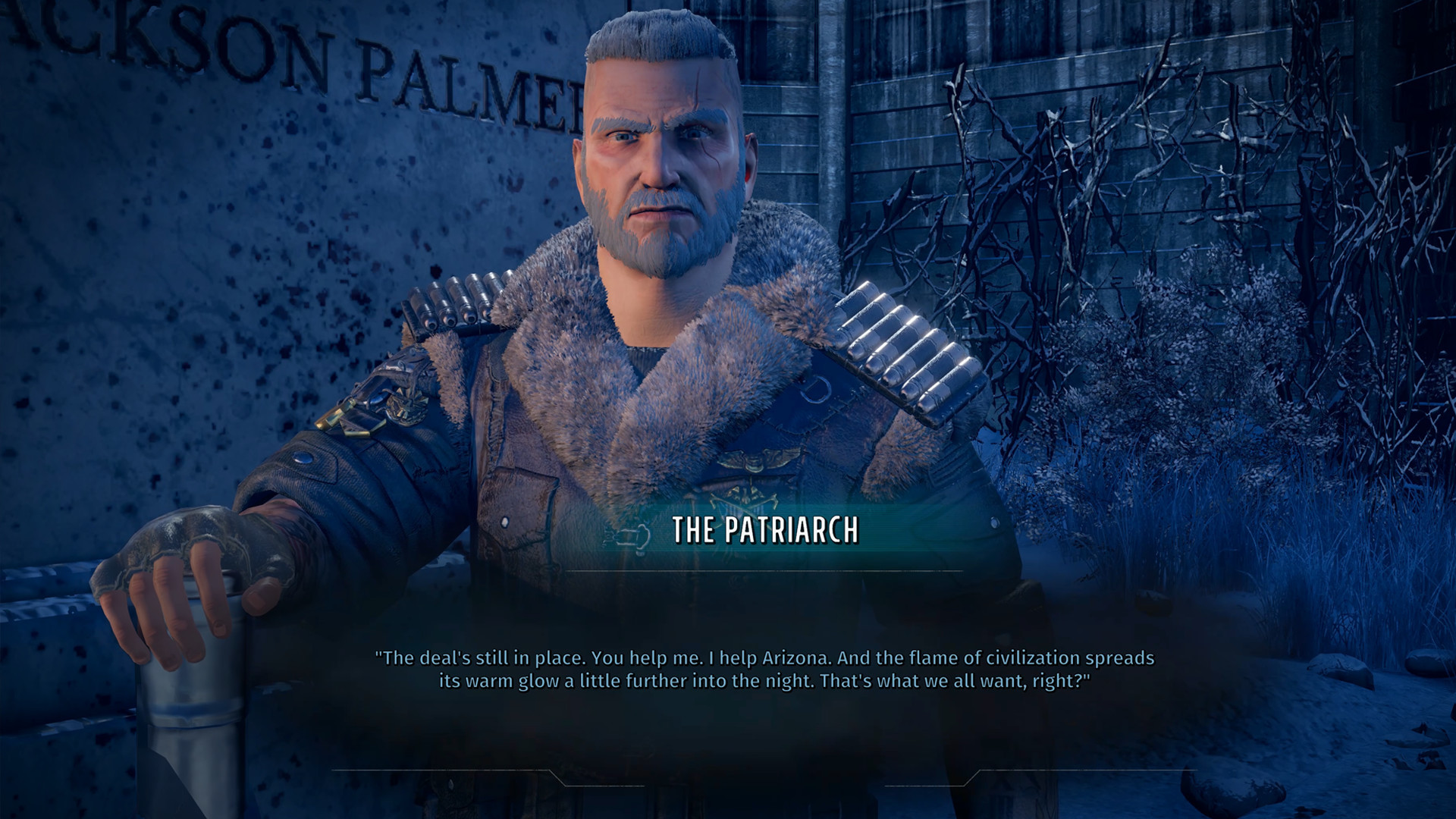 Will frozen Colorado prove to be more dangerous for the players than post-apocalyptic Arizona from the previous parts of the series?
Will frozen Colorado prove to be more dangerous for the players than post-apocalyptic Arizona from the previous parts of the series?They both have their own dangers for sure. We certainly don’t pull any punches. There is no shortage of ways to die in Colorado. When it comes to how we murder you on the world map, we have made some changes for the better. Our world map, first off, looks amazing! We’ve also made some changes to random encounters. Avoiding random encounters is no longer random.
Each encounter in each area has its own skill needed to avoid it. It gives you a much better feeling of control over the world and the experience you want. Other skills now, for the first time, come into play in random encounters. With certain skills, based on the encounter type, you can use them to gain an advantage in combat. For example, you can use your Sneaky Shit skill to ambush your ambushers.
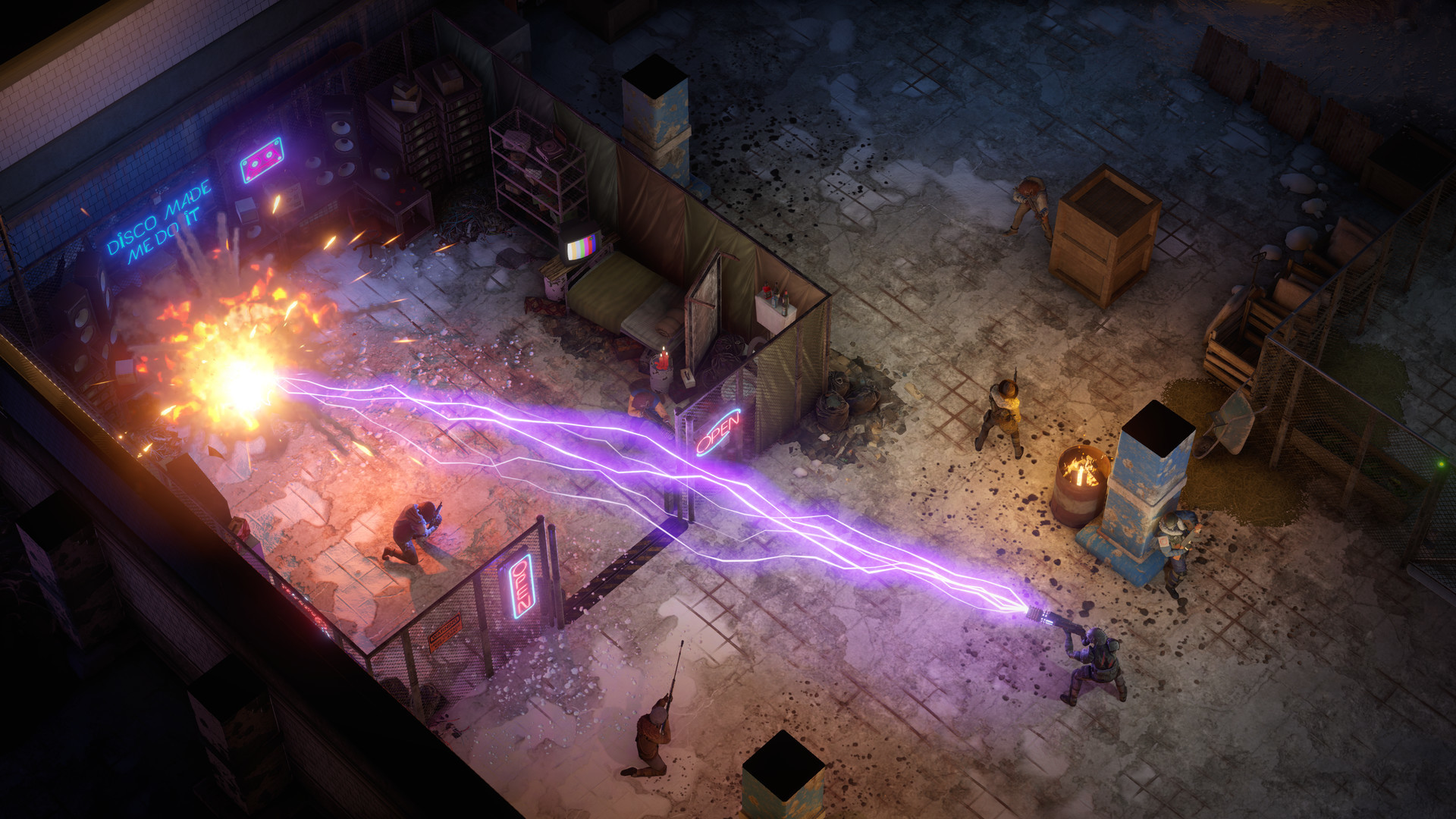
Radiation has a fun twist on it now too. Radiation will kill you, make no mistake, but a quick dance in the radiation can now result in random mutations or tumors forming on your ranger. Maybe that 3rd eye you grew is worth the nausea you got from your radiation bath.
How does it feel to work with legendary game designer and producer, Brian Fargo? What kind of boss is he?He’s fantastic. He really does play a huge role in driving the tone and feel of our games. He has a great sense of what players want from our games and how to make a game strike an emotional chord. A lot of the humor and drama in
Wasteland 3 reflect Brian and Matt Findley’s (narrative director on this game) sensibilities. He really tries hard, particularly early in the project, to drill into the team the tone he wants to strike and the kind of game-feel he wants, and works to keep the game true to that vision, all while making sure to amplify the creativity that flows around inXile when we’re building a game.
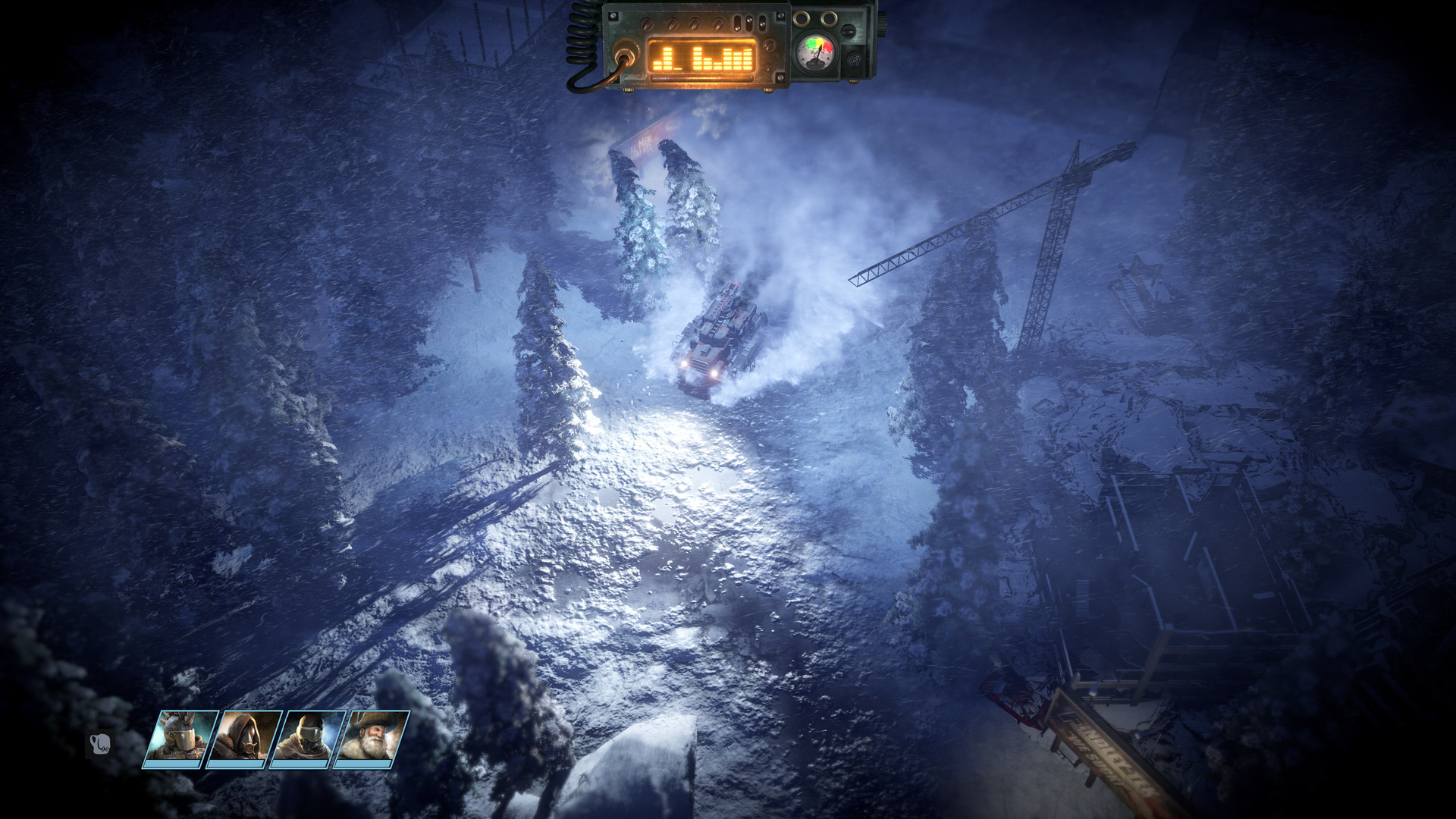 What was the most difficult part of creating Wasteland 3?
What was the most difficult part of creating Wasteland 3?I think if you ask every member of our team you’ll get fifty different answers. There were so many challenges to overcome in making this game and each was its own war story. Basically, every problem we solved was exacerbated by how massive this game turned out to be.
Optimizing the game was a huge effort from everyone. It was a huge challenge from the get-go just building what feels like 80+ hours of gameplay, recording all those voices, balancing all that content, building all the items, putting SFX and music everywhere, and then having to test the whole thing. Testing a game like this is such a challenge because there’s simply no replacement for just playing the game.
Everything’s just so interconnected. If you tweak one little thing it can have huge impacts on the economy, which impacts combat difficulty, which impacts how much ammo and health packs you use, which comes back to impact the economy again, etc etc. When a natural playthrough for us clocks in at around 80 hours you can only do huge balance passes so many times.
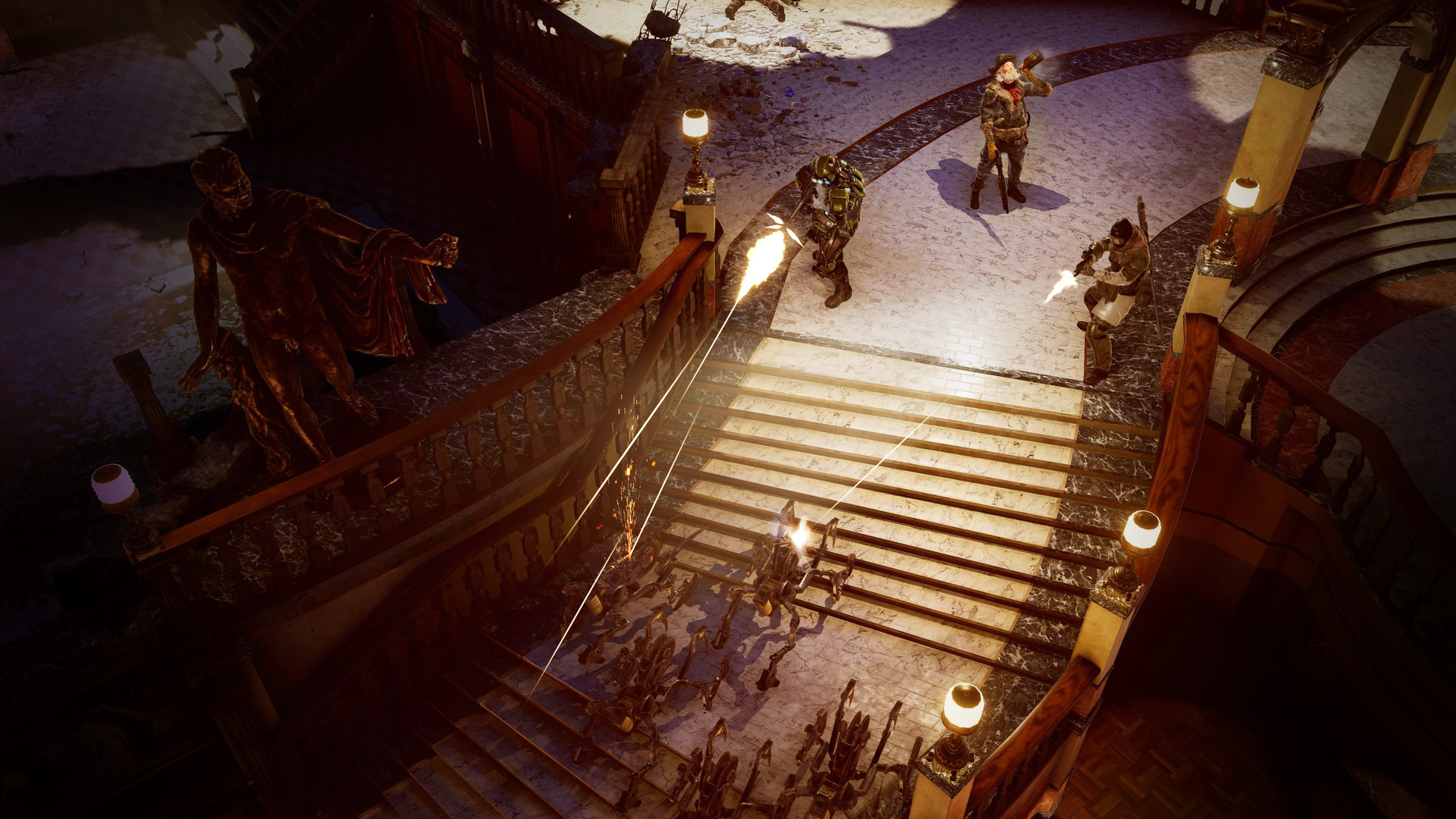 What feeling would you like to convey to the players that are waiting on the edge of their seats for Wasteland 3?
What feeling would you like to convey to the players that are waiting on the edge of their seats for Wasteland 3?Personally, gratitude. Our community has felt supportive of what we’re doing so far. Each time we release a backer demo they come back to us with support for what we’re doing, as well as constructive criticism, letting us know what else they want from us. We polished our merchant interface, added a mini-map, added crouch, added alternate weapon fire modes, and a ton of other smaller bits of polish based on the feedback from our fans.
We built a huge game designed to let players tell their own stories, and we’re so excited to see what people do with our game. A huge thrill for me personally, and I know a lot of devs feel the same way, is watching people stream our games. Watching someone have fun with your game is about as rewarding as it gets for a game developer.
 What element of the Wasteland series have you always felt most drawn into, what kept you going through the years of games’ development?I’ve really loved helping build Wasteland alongside my amazing team. It feels a heck of a lot like being a Dungeon Master. We’re really focused on telling the player’s story, trying to anticipate their every move, and make the game work no matter what they do. Something that’s really motivated all of us as we finish polishing Wasteland has been the fan feedback during the Alpha and Beta tests. I feel a lot of support from our community of Wasteland fans.Who is your favorite character from the game and why? We would appreciate as many answers from the team as possible.David Rogers, Lead Designer - Scotchmo. I just find him a joy to be around. He really lightens the mood of our often-bleak game. From a playstyle perspective, and for what he does to the story, I’d go with Ironclad Cordite. He’s got his own agenda and it’s pretty horrible, but if you entertain his plans he’ll take the game in a crazy direction.
What element of the Wasteland series have you always felt most drawn into, what kept you going through the years of games’ development?I’ve really loved helping build Wasteland alongside my amazing team. It feels a heck of a lot like being a Dungeon Master. We’re really focused on telling the player’s story, trying to anticipate their every move, and make the game work no matter what they do. Something that’s really motivated all of us as we finish polishing Wasteland has been the fan feedback during the Alpha and Beta tests. I feel a lot of support from our community of Wasteland fans.Who is your favorite character from the game and why? We would appreciate as many answers from the team as possible.David Rogers, Lead Designer - Scotchmo. I just find him a joy to be around. He really lightens the mood of our often-bleak game. From a playstyle perspective, and for what he does to the story, I’d go with Ironclad Cordite. He’s got his own agenda and it’s pretty horrible, but if you entertain his plans he’ll take the game in a crazy direction. Alex Kerr, Level Designer - Party Pal. When everyone else sees a frozen hellscape, it sees a potential party!Thomas Beekers, Narrative Designer - Long John, a synth hiding in the Bizarre, disguised very poorly by wearing a Richard Nixon mask. Long John is a good combination of Wasteland 3's 80s roots and sense of humor, while also having a dark plotline. And his dialog is quite funny!Eric Schwarz, Lead Systems Designer - The Prisoner. I love how you find him just hanging out in the prison of Ranger HQ when you move in, and the mystery of who he is, how he got there, and how you just can't figure out any answers no matter how many questions you ask. He is also written and voiced in a way that is absolutely hilarious and I remember laughing out loud for pretty much the entire conversation with him.Kitty Lee, Producer - Servitor bots, their voices crack me up.
Alex Kerr, Level Designer - Party Pal. When everyone else sees a frozen hellscape, it sees a potential party!Thomas Beekers, Narrative Designer - Long John, a synth hiding in the Bizarre, disguised very poorly by wearing a Richard Nixon mask. Long John is a good combination of Wasteland 3's 80s roots and sense of humor, while also having a dark plotline. And his dialog is quite funny!Eric Schwarz, Lead Systems Designer - The Prisoner. I love how you find him just hanging out in the prison of Ranger HQ when you move in, and the mystery of who he is, how he got there, and how you just can't figure out any answers no matter how many questions you ask. He is also written and voiced in a way that is absolutely hilarious and I remember laughing out loud for pretty much the entire conversation with him.Kitty Lee, Producer - Servitor bots, their voices crack me up. Will frozen Colorado prove to be more dangerous for the players than post-apocalyptic Arizona from the previous parts of the series?They both have their own dangers for sure. We certainly don’t pull any punches. There is no shortage of ways to die in Colorado. When it comes to how we murder you on the world map, we have made some changes for the better. Our world map, first off, looks amazing! We’ve also made some changes to random encounters. Avoiding random encounters is no longer random.Each encounter in each area has its own skill needed to avoid it. It gives you a much better feeling of control over the world and the experience you want. Other skills now, for the first time, come into play in random encounters. With certain skills, based on the encounter type, you can use them to gain an advantage in combat. For example, you can use your Sneaky Shit skill to ambush your ambushers.
Will frozen Colorado prove to be more dangerous for the players than post-apocalyptic Arizona from the previous parts of the series?They both have their own dangers for sure. We certainly don’t pull any punches. There is no shortage of ways to die in Colorado. When it comes to how we murder you on the world map, we have made some changes for the better. Our world map, first off, looks amazing! We’ve also made some changes to random encounters. Avoiding random encounters is no longer random.Each encounter in each area has its own skill needed to avoid it. It gives you a much better feeling of control over the world and the experience you want. Other skills now, for the first time, come into play in random encounters. With certain skills, based on the encounter type, you can use them to gain an advantage in combat. For example, you can use your Sneaky Shit skill to ambush your ambushers. Radiation has a fun twist on it now too. Radiation will kill you, make no mistake, but a quick dance in the radiation can now result in random mutations or tumors forming on your ranger. Maybe that 3rd eye you grew is worth the nausea you got from your radiation bath.How does it feel to work with legendary game designer and producer, Brian Fargo? What kind of boss is he?He’s fantastic. He really does play a huge role in driving the tone and feel of our games. He has a great sense of what players want from our games and how to make a game strike an emotional chord. A lot of the humor and drama in Wasteland 3 reflect Brian and Matt Findley’s (narrative director on this game) sensibilities. He really tries hard, particularly early in the project, to drill into the team the tone he wants to strike and the kind of game-feel he wants, and works to keep the game true to that vision, all while making sure to amplify the creativity that flows around inXile when we’re building a game.
Radiation has a fun twist on it now too. Radiation will kill you, make no mistake, but a quick dance in the radiation can now result in random mutations or tumors forming on your ranger. Maybe that 3rd eye you grew is worth the nausea you got from your radiation bath.How does it feel to work with legendary game designer and producer, Brian Fargo? What kind of boss is he?He’s fantastic. He really does play a huge role in driving the tone and feel of our games. He has a great sense of what players want from our games and how to make a game strike an emotional chord. A lot of the humor and drama in Wasteland 3 reflect Brian and Matt Findley’s (narrative director on this game) sensibilities. He really tries hard, particularly early in the project, to drill into the team the tone he wants to strike and the kind of game-feel he wants, and works to keep the game true to that vision, all while making sure to amplify the creativity that flows around inXile when we’re building a game. What was the most difficult part of creating Wasteland 3?I think if you ask every member of our team you’ll get fifty different answers. There were so many challenges to overcome in making this game and each was its own war story. Basically, every problem we solved was exacerbated by how massive this game turned out to be.Optimizing the game was a huge effort from everyone. It was a huge challenge from the get-go just building what feels like 80+ hours of gameplay, recording all those voices, balancing all that content, building all the items, putting SFX and music everywhere, and then having to test the whole thing. Testing a game like this is such a challenge because there’s simply no replacement for just playing the game.Everything’s just so interconnected. If you tweak one little thing it can have huge impacts on the economy, which impacts combat difficulty, which impacts how much ammo and health packs you use, which comes back to impact the economy again, etc etc. When a natural playthrough for us clocks in at around 80 hours you can only do huge balance passes so many times.
What was the most difficult part of creating Wasteland 3?I think if you ask every member of our team you’ll get fifty different answers. There were so many challenges to overcome in making this game and each was its own war story. Basically, every problem we solved was exacerbated by how massive this game turned out to be.Optimizing the game was a huge effort from everyone. It was a huge challenge from the get-go just building what feels like 80+ hours of gameplay, recording all those voices, balancing all that content, building all the items, putting SFX and music everywhere, and then having to test the whole thing. Testing a game like this is such a challenge because there’s simply no replacement for just playing the game.Everything’s just so interconnected. If you tweak one little thing it can have huge impacts on the economy, which impacts combat difficulty, which impacts how much ammo and health packs you use, which comes back to impact the economy again, etc etc. When a natural playthrough for us clocks in at around 80 hours you can only do huge balance passes so many times. What feeling would you like to convey to the players that are waiting on the edge of their seats for Wasteland 3?Personally, gratitude. Our community has felt supportive of what we’re doing so far. Each time we release a backer demo they come back to us with support for what we’re doing, as well as constructive criticism, letting us know what else they want from us. We polished our merchant interface, added a mini-map, added crouch, added alternate weapon fire modes, and a ton of other smaller bits of polish based on the feedback from our fans.We built a huge game designed to let players tell their own stories, and we’re so excited to see what people do with our game. A huge thrill for me personally, and I know a lot of devs feel the same way, is watching people stream our games. Watching someone have fun with your game is about as rewarding as it gets for a game developer.
What feeling would you like to convey to the players that are waiting on the edge of their seats for Wasteland 3?Personally, gratitude. Our community has felt supportive of what we’re doing so far. Each time we release a backer demo they come back to us with support for what we’re doing, as well as constructive criticism, letting us know what else they want from us. We polished our merchant interface, added a mini-map, added crouch, added alternate weapon fire modes, and a ton of other smaller bits of polish based on the feedback from our fans.We built a huge game designed to let players tell their own stories, and we’re so excited to see what people do with our game. A huge thrill for me personally, and I know a lot of devs feel the same way, is watching people stream our games. Watching someone have fun with your game is about as rewarding as it gets for a game developer.
